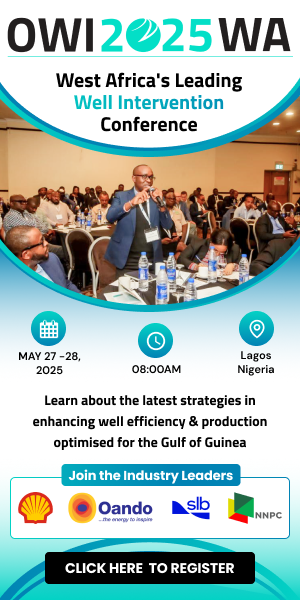WITH THE FIRST official flow of oil from Ghana’s lucrative Jubilee offshore field mid December, exploration/production partners: Government of Ghana, state-owned Ghana National Petroleum Corporation (GNPC) and Kosmos Energy of U.S., the technical operator have reached a settlement that could lead to Kosmos resurrecting its bid to sell her 23.491 per cent interest in the field.
p style="margin-bottom: 0cm;">WITH THE FIRST official flow of oil from Ghana’s lucrative Jubilee offshore field mid December, exploration/production partners: Government of Ghana, state-owned Ghana National Petroleum Corporation (GNPC) and Kosmos Energy of U.S., the technical operator have reached a settlement that could lead to Kosmos resurrecting its bid to sell her 23.491 per cent interest in the field.
The agreement signed by Dr. Joe Oteng-Adjei, Ghana’s Minister for Energy, Ato Ahwoi, Chairman of GNPC, and Brian F. Maxted, Kosmos Chief Operating Officer, for Kosmos Energy, late December 2010 in Accra includes an assurance by then Attorney-General, Mrs. Betty Mould-Iddrisu that Kosmos is “neither a subject nor a party to any criminal action” which puts the company in a position to attract buyers to meet its financial obligations to equity fund managers, Blackstone Group and Warburg Pincus, its backers.
Kosmos earlier attempts to sell to its compatriot ExxonMobil at close to $4bn became unraveled after GNPC vetoed the deal insisting the American acquired the relevant seismic data illegally and therefore described the agreement as a ‘flawed process’ leading to an eventual pull-out by ExxonMobil. GNPC however expressed interest in Kosmos’ stake by matching ExxonMobil’s offer.
The current production status of 55,000 bpd and scheduled to peak at 120,000 by the second quarter of 2011 and bolstered by other discoveries in the WCTPB named ‘Owo’ and ‘Tweneboa’ will now make Kosmos Energy’s stake even more attractive even though the buyer assumes other obligations of Kosmos in the Jubilee and other fields yet to be developed.
But with production now on-stream, it is now possible to calculate actual investments made by the American independent and therefore easier to agree on a fairer price.
Kosmos Energy has had a torrid relationship with its Ghanaian partners over accusations of data rights violations, attempts to sell its stakes to ExxonMobil without prior written consent, and a fine imposed by state environmental agencies over spillage of toxic materials. Even though details of their reason(s) for backing out were not made public, it was suspected that their exit was to pre-empt the outcome of a decision by a committee set up to look into all the issues of disagreement among GNPC, Kosmos, ExxonMobil, and Government.
Other partners in the field are Tullow Oil, lead partner and operator (34.705 per cent), Anadarko WCTP, a subsidiary of Anadarko Petroleum Corporation, (23.491 per cent), GNPC, Sabre Oil & Gas Holdings Limited and the E.O. Group Limited, hold 13.75 per cent, 2.813 per cent; and 1.750 per cent respectively.
In announcing the settlement Kosmos said the parties had reached an amicable resolution on “several issues that have existed among” themselves, Government and GNPC, referring to ‘settlement regarding data, as well as matters related to Kosmos’ debt facility and corporate structure.’
The release said ‘Additionally, the Attorney General of Ghana has formally confirmed that Kosmos will not be the subject or party to any criminal or judicial actions in Ghana for events prior to such confirmation.” It continued that “Separately, Kosmos and the Ministry of Science, Environment and Technology have agreed to a solution with respect to the accidental mud discharges offshore earlier this year, whereby Kosmos would support the Ministry’s efforts to build capacity in the environmental sector.
The Jubilee Partners inaugurated the first oil from the field on December 15, 2010 to mark the beginning of commercial oil production in Ghana.
The field was discovered in 2007 and with Kosmos as the Technical Operator for Development, it led the Integrated Project Team (IPT) which oversaw the design and conversion of the FPSO “Kwame Nkrumah” which is capable of processing 120,000 barrels of oil per day, 160 million standard cubic feet per day (MMSCFD) of gas and storing up to 1.6 million barrels of stabilized crude. It is also capable of treating and injecting 232,000 barrels of water per day for reservoir pressure maintenance and compression, and re-injecting or exporting 160 MMSCFD of gas though Ghana’s Energy Ministry said it has plans to use the associated gas after it has completed the installation of a processing plant.




